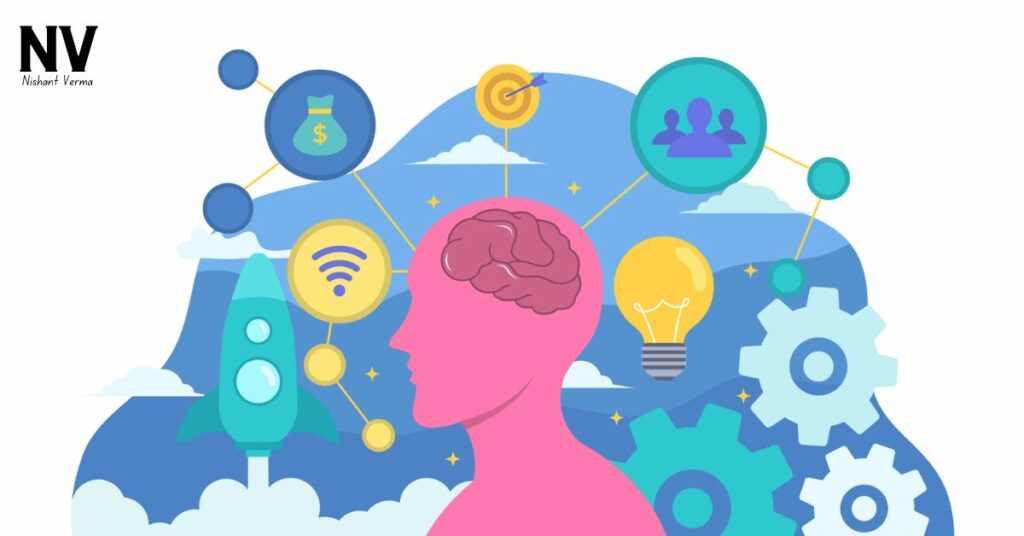Leadership is not just about making decisions and setting goals; it’s also about understanding and managing emotions in yourself and others. This guide will delve into the role of emotional intelligence and its indispensable role in effective leadership. Whether you’re a seasoned leader or just stepping into a leadership role, grasping the significance of emotional intelligence can significantly enhance your ability to lead with empathy, build strong relationships, and navigate challenges with resilience.
I. Understanding Emotional Intelligence
Defining Emotional Intelligence:
Emotional intelligence is the ability to recognize, understand, and manage one’s emotions and effectively navigate and influence the emotions of others.
Role of emotional intelligence:
Emotional intelligence comprises self-awareness, self-regulation, motivation, empathy, and social skills. Each component plays a crucial role in effective leadership.

II. The Impact of Emotional Intelligence on Leadership
Building Trust and Credibility:
Leaders with high role of emotional intelligence build trust effortlessly. They create a transparent and trustworthy leadership style by being authentic and aware of their emotions.
Effective Communication:
Emotional intelligence enhances communication skills. Leaders who understand and express their emotions effectively can clearly convey their messages, leading to better team understanding.
Conflict Resolution:
Leaders often face conflicts within teams. The Role of emotional intelligence allows leaders to navigate conflicts by understanding the emotions at play, finding common ground, and fostering resolutions that benefit everyone
Motivating and Inspiring Teams:
Motivating a team requires more than just setting goals. Leaders with emotional intelligence inspire and motivate by connecting with the emotions of their team members, understanding their needs, and providing meaningful encouragement.

III. The Five Components of Emotional Intelligence
Self-Awareness:
Definition: Recognizing and understanding one’s own emotions.
Leadership Impact: Self-aware leaders make informed decisions, understand their strengths and weaknesses, and create an authentic leadership style.
Self-Regulation:
Definition: Managing and controlling one’s own emotions.
Leadership Impact: Leaders who can regulate their emotions remain composed under pressure, make thoughtful decisions, and set a positive example for their teams.
Motivation:
Definition: Being driven to achieve goals beyond external rewards.
Leadership Impact: Motivated leaders inspire their teams, demonstrating a passion for their work and fostering a shared sense of purpose.
Empathy:
Definition: Understanding and sharing the feelings of others.
Leadership Impact: Empathetic leaders build strong relationships, connect with team members personally, and create a supportive work environment.
Social Skills:
Definition: Navigating social situations and building positive relationships.
Leadership Impact: Leaders with strong social skills excel in team collaboration, effective communication, and conflict resolution.
IV. Developing Role of Emotional Intelligence in Leadership
Self-Reflection:
Encourage leaders to engage in regular self-reflection to understand their emotional triggers, strengths, and areas for improvement.
Feedback and Assessment:
Seek feedback from peers, team members, or mentors. Assessments or 360-degree feedback can provide valuable insights into the role of emotional intelligence strengths and areas to develop.
Emotional Intelligence Training:
Offer training programs focused on emotional intelligence training. These programs can include activities, workshops, and resources to enhance emotional intelligence skills.
Modeling Emotional Intelligence:
Leaders should model the behaviour they want to see in their teams. Leaders create a culture where these skills are valued by demonstrating emotional intelligence.
V. Real-World Examples of Emotional Intelligence in Leadership
Satya Nadella (Microsoft):
Satya Nadella, the CEO of Microsoft, is praised for his empathetic leadership style. He has fostered a culture of collaboration and innovation by understanding the diverse perspectives of his team.
Sheryl Sandberg (Facebook):
Facebook’s COO, Sheryl Sandberg, demonstrates emotional intelligence by openly addressing challenges and losses. Her ability to connect on a human level has contributed to her leadership effectiveness.
Warren Buffett (Berkshire Hathaway):
Warren Buffett, known for his calm and composed demeanour, showcases strong self-regulation. His role of emotional intelligence has played a role in his long-term success as an investor and leader.
VI. The Role of Emotional Intelligence in Different Leadership Contexts
Small Business Leadership:
In small business leadership, leaders wearing multiple hats benefit greatly from emotional intelligence. Understanding the emotions of a close-knit team is crucial for effective leadership.
Nonprofit Leadership:
Nonprofit leadership, often dealing with emotionally charged causes, require high emotional intelligence to connect with stakeholders, donors, and beneficiaries on a deeper level.
Educational Leadership:
Educational leadership must navigate diverse relationships with students, teachers, and parents. Emotional intelligence fosters positive communication and understanding in educational settings.
VII. Nurturing Emotional Intelligence in Team Members
Promoting a Positive Work Environment:
Leaders can foster emotional intelligence in their teams by creating a positive and supportive work environment. This includes recognizing achievements, providing constructive feedback, and valuing diverse perspectives
Encouraging Open Communication:
Open communication channels encourage team members to express their thoughts and emotions. Leaders should actively listen, be approachable, and create a culture where communication is valued.
Providing Emotional Intelligence Training:
Offer workshops or training sessions focused on emotional intelligence for team members. This can enhance their understanding of emotions and improve interpersonal skills.
VIII. Emotional Intelligence in Times of Crisis
Leading Through Adversity:
Leading Through Adversity:
During times of crisis, emotional intelligence becomes even more crucial. Leaders who understand and manage emotions can effectively guide their teams through challenging situations.
Supporting Team Well-Being:
Leaders with a high role of emotional intelligence prioritize the well-being of their teams during crises. They offer support, understanding, and stability in uncertain times.
Building Resilience:
Emotional intelligence contributes to team resilience. Leaders who can navigate stress and uncertainty with composure inspire resilience in their teams.
IX. Future Trends in Emotional Intelligence and Leadership
Digital Leadership and Remote Work:
With the rise of remote work and digital collaboration, leaders must adapt their emotional intelligence skills to lead virtual teams and navigate digital communication effectively.
Cultural Sensitivity:
As organizations become more globally connected, leaders must emphasize cultural sensitivity in their emotional intelligence approach, recognizing and respecting diverse cultural norms.
Emotional AI and Leadership Tools:
Integrating emotional intelligence into AI and leadership tools will likely become a trend. These tools can provide real-time insights and recommendations to enhance leaders’ emotional intelligence.
Conclusion
In the tapestry of effective leadership, emotional intelligence is the vibrant thread that weaves through every interaction, decision, and challenge. Understanding and developing emotional intelligence is not just a skill; it’s a cornerstone of successful leadership. As a leader, embracing emotional intelligence empowers you to connect authentically, lead with empathy, and guide your team through the ever-evolving landscape of work and human relationships. So, dive into the role of emotional intelligence, nurture these essential skills, and watch as they transform your leadership journey into one marked by resilience, understanding, and impactful connection




